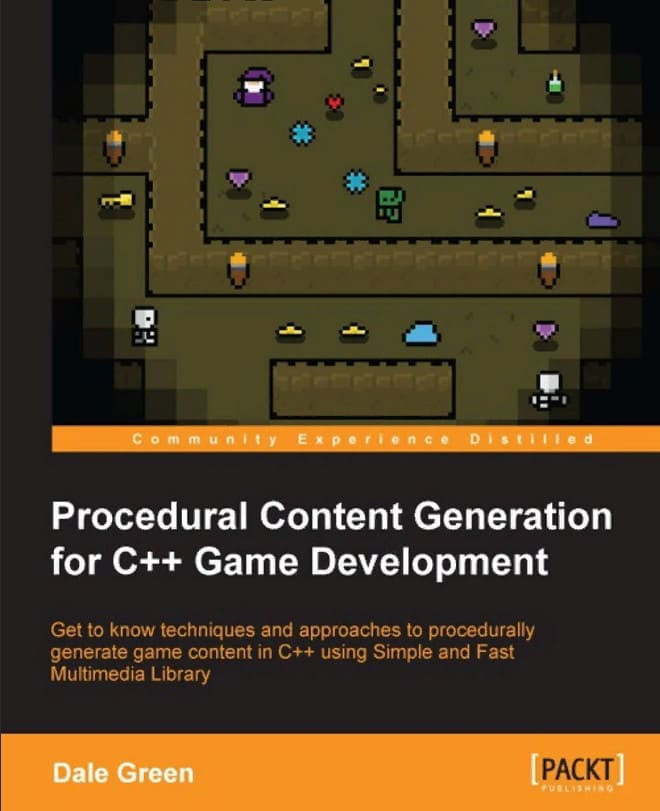
C++ is the industry-standard programming language to write computer games. It’s at the heart of most engines, and is incredibly powerful. SFML is an easy-to-use, cross-platform, and open-source multimedia library.
Access to computer hardware is broken into succinct modules, making it a great choice if you want to develop cross-platform games with ease. Using C++ and SFML technologies, this book will guide you through the techniques and approaches used to generate content procedurally within game development.
Throughout the course of this book, we’ll look at examples of these technologies, starting with setting up a roguelike project using the C++ template.
We’ll then move on to using RNG with C++ data types and randomly scattering objects within a game map. We will create simple console examples to implement in a real game by creating unique and randomised game items, dynamic sprites, and effects, and procedurally generating game events.
Then we will walk you through generating random game maps. At the end, we will have a retrospective look at the project.
By the end of the book, not only will you have a solid understanding of procedural generation, but you’ll also have a working roguelike game that you will have extended using the examples provided.
Скачать книгу можно бесплатно по данной ссылке: Скачать

































0 Comments